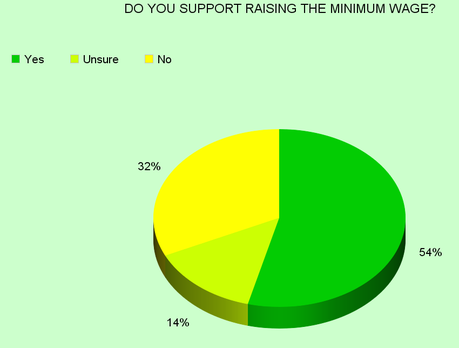
It is just a fact that since 1968 the minimum wage has lost over a third of its buying power. That means that a person making the minimum wage can buy today only 2/3 of what he/she could have bought in 1968. And while the minimum wage back then was barely a livable wage, it no longer is.
It just makes sense that anyone willing to work hard at a full-time job should be paid a livable wage -- a wage that puts them above the poverty level. Those willing to work should not have to depend on federal programs to keep their heads above water (like food stamps).
Raising the minimum wage to a livable wage would not just benefit those working at or near the minimum wage. It would benefit our whole society. First, it would take millions off the poverty roles and save the government a ton of money. It would also be a big boost to the economy, since these low-wage workers would spend most of that new money they have -- and that would increase business profits and create new jobs because of the increased demand for goods/services. It would also increase worker productivity and loyalty. And it would do all of that without a penny in increased government spending.
Raising the minimum wage makes a lot of sense -- and that is probably why a majority of Americans support it. In fact, 54% of Americans support raising it, while only 32% oppose it. These numbers are from a new Rasmussen Poll -- done between April 2nd and 5th of a random national sample of 800 adults, with a 3.5 point margin of error.
Unfortunately, the Republicans oppose raising the minimum wage (and some would even abolish it altogether), and since they control both houses of Congress, we are not likely to see it raised before at least 2017. We need to remember how out-of-step with the public that the Republicans are in the 2016 election -- on the minimum wage and many other issues.

